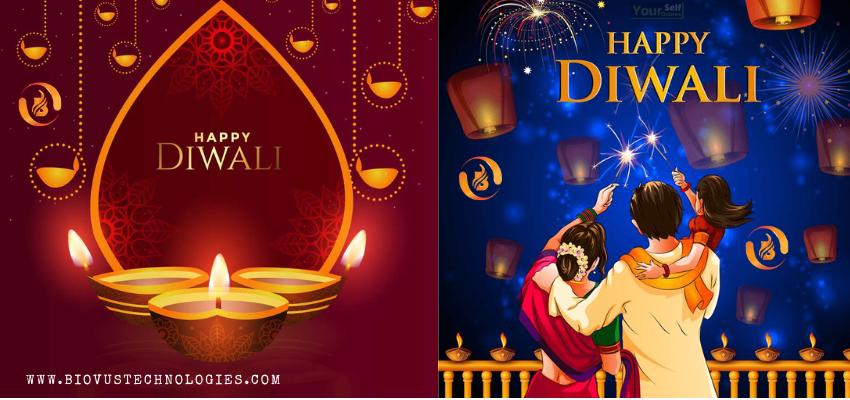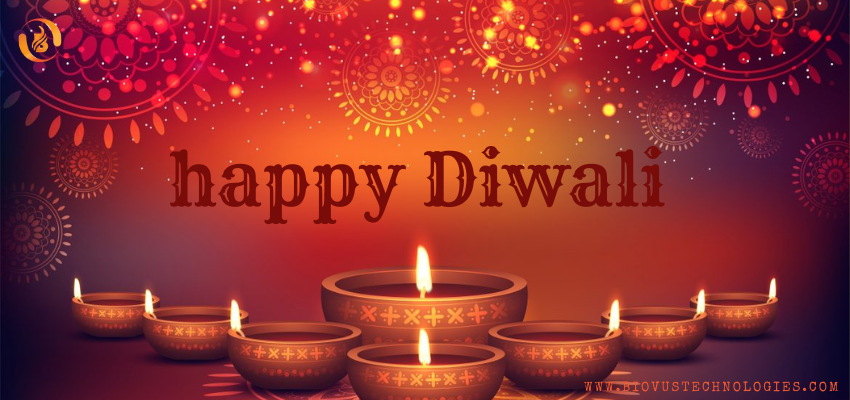Diwali is an occasion to celebrate victory over defeat, light over darkness, awareness over ignorance, and an occasion to celebrate life: may this auspicious time light up your life with happiness, joy, and peace this Diwali.
One of the most important religious celebrations in Hinduism, Jainism, and Sikhism is called Diwali, often called Divali. It lasts for five days, from the 13th day of the dark half of the lunar month Ashvina to the second day of the light half of the lunar month Kartika. (In the Gregorian calendar, these days typically fall in late October or early November.) The word “row of lights” (dipavali) in Sanskrit is where the name “row of lights” originates. Generally speaking, the event represents the triumph of light over darkness.
Diwali celebrations vary depending on geography and culture. The most famous Hindu tradition involves lighting diyas, tiny earthenware lamps filled with oil, on the night of the new moon to summon the goddess of riches, Lakshmi. The goddess Kali is revered in Bengal. In North India, the festival also commemorates Rama’s triumph over Ravana, the 10-headed ruler of the demons, and his return to the city of Ayodhya with Sita, Lakshman, and Hanuman, linking it to the Dussehra holiday. The event commemorates Krishna’s victory over the demon Narakasura in South India. Diwali is remembered by some as the anniversary of Lakshmi and Vishnu’s union, while it is observed by others as Lakshmi’s birthday.
Diyas are lit, arranged in rows along the parapets of temples and homes, and tossed into rivers and streams during the celebration. Rangoli, which are complex designs constructed of colored rice, sand, or flower petals, are used to decorate homes and cover the floors both inside and outside. In the hopes that Lakshmi may enter a home and bestow wealth and success on the occupants, doors and windows are left open.

The Names And Events Of The Individual Days Of Diwali:
On Dhanteras, the first day, people clean their homes and buy tiny gold objects. On that day, Lakshmi is the object of worship. The second day, also known as Naraka Chaturdashi or Choti Diwali, honors Krishna’s victory over Narakasura and is when prayers are said for ancestors’ souls. On the third day, Lakshmi Puja, families visit temples, light diyas, candles, and fireworks, and ask Lakshmi for her blessings to ensure their prosperity. It is the festival of Diwali’s primary day. known as the fourth day.
The Vikrama (Hindu) calendar’s Goverdhan Puja, Balipratipada, or Annakut celebration, which honors Krishna’s victory over the god Indra, marks the beginning of Karttika and the new year. Merchants hold religious rituals and open fresh ledgers. The fifth day, also known as Bhai Dooj, Bhai Tika, or Bhai Bij, honors the relationship between siblings. Sisters pray for their brothers’ success and welfare on that day.
Typically, Diwali is a time for visiting, exchanging gifts, donning new clothes, dining, giving to the less fortunate, and lighting off fireworks (though such displays have been restricted to limit noise and other environmental pollution). In order to ensure luck in the upcoming year and in recollection of dice games performed by Shiva and Parvati on Mount Kailasa or similar contests between Radha and Krishna, gambling, especially in the form of card games, is encouraged. Traditionally, the female player always prevails in Lakshmi’s honor.
May the lamps of Diwali illuminate your life with happiness, joy, peace, and health. I wish you and your family a very prosperous and Happy Diwali
visit us on: www.biovustechnologies.com







